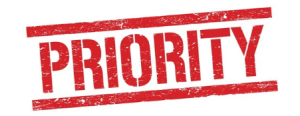 Have you talked to your Spanish-speaking employees about the eclipse?
Have you talked to your Spanish-speaking employees about the eclipse?
It seems like most of NY state is shutting down this coming Monday, April 8th for the rare total solar eclipse – schools, offices and even Wegmans! One thing that definitely won’t be shutting down though are the dairy farms across the state. Cow’s won’t lower their feed intake or skip a milking in observance, meaning that many employees will still be hard at work that day.
Consider holding a brief employee meeting this week to make sure that all employees are aware that the eclipse will be happening, what it means and what precautions they should take to stay safe. Don’t have time for a meeting? Send out a text message to your employee group with a few reminders and resources.
Here are a few short videos in Spanish to consider sharing with employees:
- Univision describes the eclipse in North America: https://www.youtube.com/watch?v=zyjc4NyhrEU
- Univision, New York offers a short news clip on the eclipse in NY, including the time it will occur, when the next eclipse in North America will happen, and a QR code to get free glasses. https://www.youtube.com/watch?v=zyjc4NyhrEU
- Univision again shares a video featuring interviews and information from NASA with slightly more in-depth information. https://www.youtube.com/watch?v=RL79cOCpDoQ
Some farms have bought solar-eclipse glasses for all of their employees and even decided to shut down the parlor for a short time to allow everyone the opportunity to view this amazing phenomenon! This is a great idea for team building as well as safety. If your team will continue working in the parlor and the barn during the total eclipse, make a plan to provide lighting for those moving animals. From all of us at Ag Workforce Development, enjoy the day and stay safe!
Image rights: Mathew Schwartz, Unsplash; taken in Kentucky during the 2017 August Total Eclipse.
_______________________________________________________________________
By Kaitlyn Lutz, Bilingual Dairy Specialist, CCE NWNY Dairy, Livestock and Field Crops Team. Permission granted to repost, quote, and reprint with author attribution.
The post Discussing the Solar Eclipse With Your Spanish Speaking Employees appeared in The Ag Workforce Journal.


 1. Start on day one with the protocols and rules of the bathroom. Even though it seems childish, spend time teaching the expectations of how to use the facilities: how to clean after yourself, where toilet paper goes and where paper towels go, etc. Even explain how to wash hands. Remember that paper towels in Mexico are not common. If you had never used one before, how would you know how many to use? Where do you dispose it? What do you use them for? Plumbing in Mexico uses small pipes. Toilet paper cannot be put into the toilet, or the toilet will become plugged. So, if you don’t want a whole bunch of used toilet paper in the trash, explain to employees where it goes and that the pipes will not become plugged here in the U.S. with toilet paper. But do explain how they could become plugged (paper towels, trash, and other feminine products).
1. Start on day one with the protocols and rules of the bathroom. Even though it seems childish, spend time teaching the expectations of how to use the facilities: how to clean after yourself, where toilet paper goes and where paper towels go, etc. Even explain how to wash hands. Remember that paper towels in Mexico are not common. If you had never used one before, how would you know how many to use? Where do you dispose it? What do you use them for? Plumbing in Mexico uses small pipes. Toilet paper cannot be put into the toilet, or the toilet will become plugged. So, if you don’t want a whole bunch of used toilet paper in the trash, explain to employees where it goes and that the pipes will not become plugged here in the U.S. with toilet paper. But do explain how they could become plugged (paper towels, trash, and other feminine products). 2. Teach to leave things better than they are found. In order for this to work, everything must have a place. If the soap runs out, where does an employee find another bar? Do you have a place for the trash to go? Is it labeled? Benjamin Franklin wrote “A place for everything, everything in its place.”
2. Teach to leave things better than they are found. In order for this to work, everything must have a place. If the soap runs out, where does an employee find another bar? Do you have a place for the trash to go? Is it labeled? Benjamin Franklin wrote “A place for everything, everything in its place.” 3. Tidiness is part of cleanliness. Is your bathroom area also a storage area, a dumping spot for extra products? This encourages disorder and disrespect. An area that is respected is also valued and maintained tidy. Keep your bathrooms free from disorder.
3. Tidiness is part of cleanliness. Is your bathroom area also a storage area, a dumping spot for extra products? This encourages disorder and disrespect. An area that is respected is also valued and maintained tidy. Keep your bathrooms free from disorder. 4. Talk about the unspeakable. Don’t let this topic be off limits. We create culture wherever we go. We add value to things we enjoy and like and we disapprove of habits that we feel don’t represent us. Celebrate the cleanliness. Have a competition between facilities or between work shifts. Encourage staff by asking for ideas on how to make the bathrooms their own.
4. Talk about the unspeakable. Don’t let this topic be off limits. We create culture wherever we go. We add value to things we enjoy and like and we disapprove of habits that we feel don’t represent us. Celebrate the cleanliness. Have a competition between facilities or between work shifts. Encourage staff by asking for ideas on how to make the bathrooms their own.